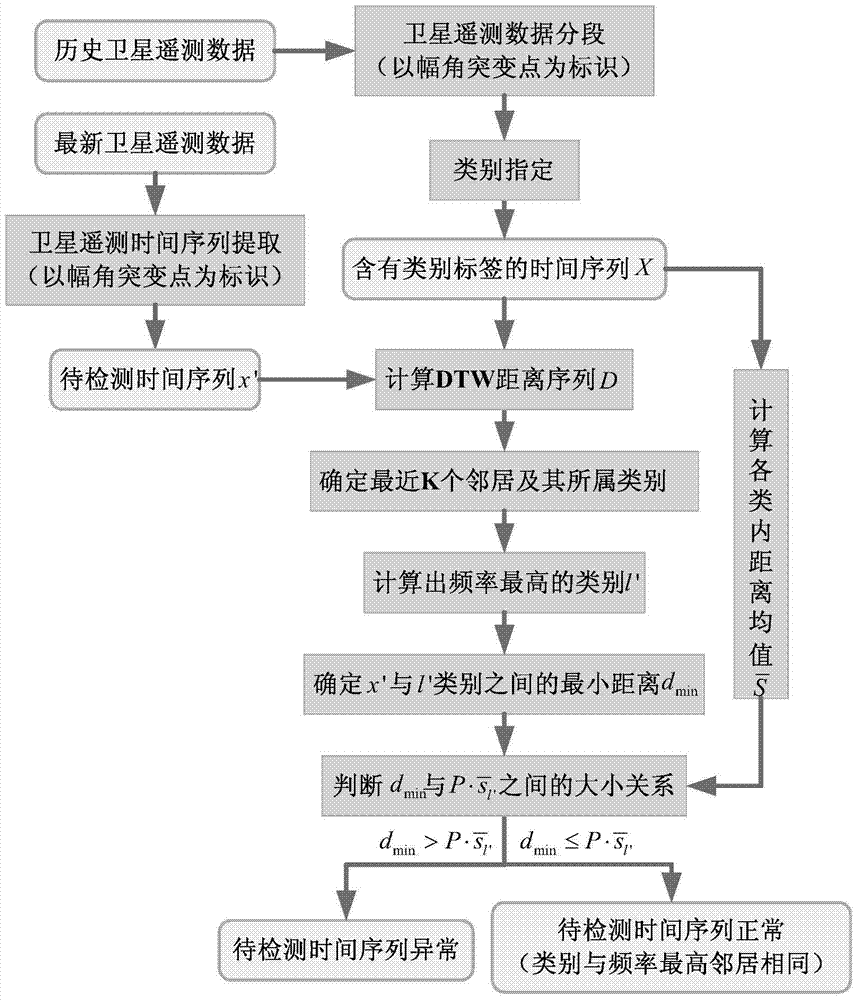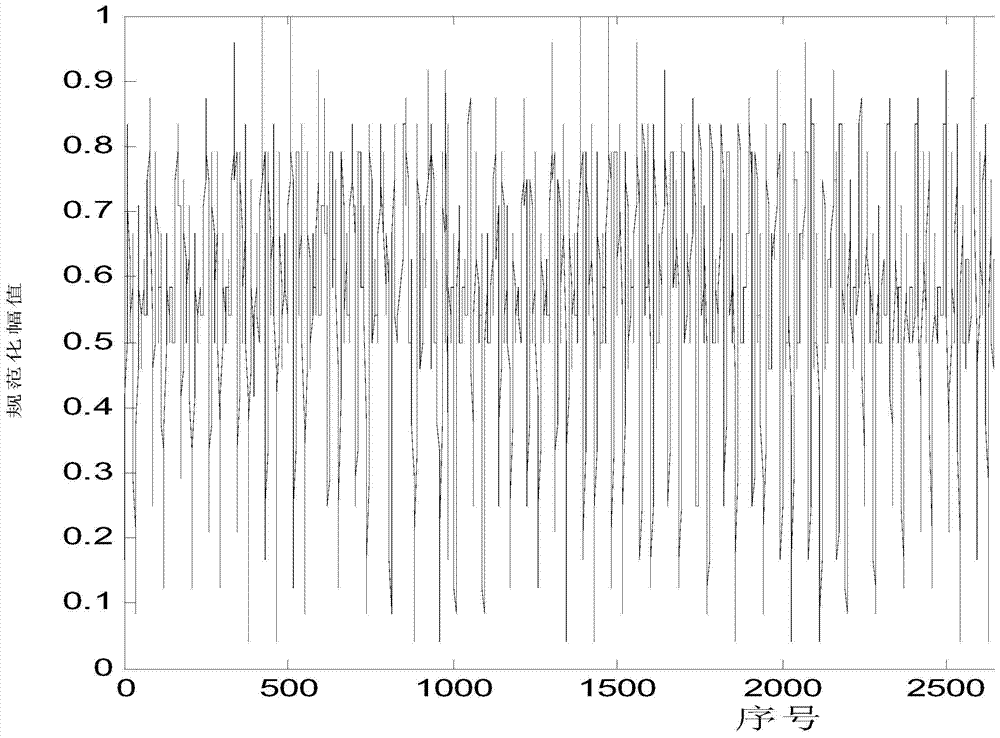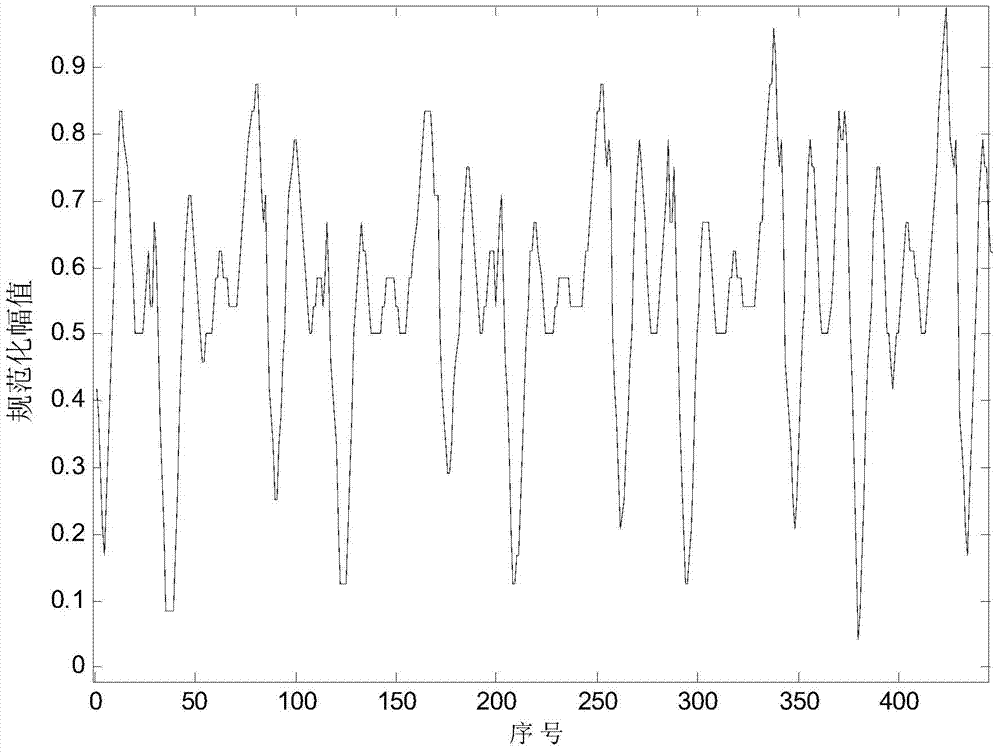Anomaly detection method of satellite telemetry data based on dtw
A satellite telemetry data and anomaly detection technology, which is applied in the field of satellite telemetry data anomaly detection, can solve the problems of missing abnormal detection of satellite components, inaccurate time series measurement results, and inaccurate abnormal detection results, etc., to achieve the effect of solving abnormal missing detection
- Summary
- Abstract
- Description
- Claims
- Application Information
AI Technical Summary
Problems solved by technology
Method used
Image
Examples
specific Embodiment approach 1
[0037] Specific implementation mode one: combine figure 1 Illustrate this embodiment, the method for abnormal detection of satellite telemetry data based on DTW, comprises the following steps:
[0038] Step 1: Segment with the point of the argument mutation point as the mark, and obtain the time series with category labels, including the normal time series X={x 1 ,x 2 ,...,x n}, the corresponding category label L={l 1 , l 2 ,...,l n}; where n is the number of time series containing category labels, l=1, 2, ..., c; c is the number of categories;
[0039] Step 2: Calculate the average DTW distance within each category in the time series containing category labels in is calculated as follows:
[0040]
[0041] in, Indicates the mean value of the intra-class distance of the l-th class, m l Indicates the number of members of class l, Indicates all members of class l, DTW(x li ,x lj ) means to calculate x li with x lj DTW distance between, i=1,2,...,m l -1,j=i+...
specific Embodiment approach 2
[0049] Specific implementation mode two: the specific implementation steps of step one described in this implementation mode are as follows:
[0050] Step 1.1: Segment the historical satellite telemetry data under the normal operating state of the satellite with the point of change in argument angle as the mark, and obtain the normal time series X={x 1 ,x 2 ,...,x n}; Argument is one of the test parameters in satellite telemetry data, and its changing law is increasing from 0 to 360. When it reaches 360, it becomes 0 and starts to increase again. The point from 360 to 0 is the argument Sudden point: Segmentation is carried out with the mark of the sudden change point of the argument angle, that is: record the corresponding time of the sudden change point of the argument angle, and extract other test parameters according to the time corresponding to the sudden change point of the argument angle, the extraction method is two adjacent sudden change points of the argument angle ...
specific Embodiment approach 3
[0053] Specific implementation mode three: the specific implementation steps of step five described in this embodiment mode are as follows:
[0054] Step 5.1: Determine the K time series containing category labels that are closest to the DTW of the time series x' to be detected, that is, when D={d 1 , d 2 ,...,d n}, take the K smallest values, and determine the time series containing the category labels corresponding to the K smallest values; the corresponding category labels are
[0055] Step 5.2: Statistical category labels The category with the highest frequency in , that is, the quasi-category is l'.
[0056] Other steps and parameters are the same as in the second embodiment.
PUM
 Login to View More
Login to View More Abstract
Description
Claims
Application Information
 Login to View More
Login to View More - R&D
- Intellectual Property
- Life Sciences
- Materials
- Tech Scout
- Unparalleled Data Quality
- Higher Quality Content
- 60% Fewer Hallucinations
Browse by: Latest US Patents, China's latest patents, Technical Efficacy Thesaurus, Application Domain, Technology Topic, Popular Technical Reports.
© 2025 PatSnap. All rights reserved.Legal|Privacy policy|Modern Slavery Act Transparency Statement|Sitemap|About US| Contact US: help@patsnap.com



